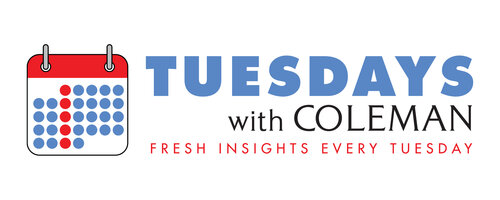
On December 19, 2021, CNBC posted the following headline:
“Stocks slide to start the week as omicron fears intensify, Dow falls 430 points.”
On December 20, 2021, CNBC went with this:
“Dow jumps 560 points as market rebounds from omicron-triggered 3-day slide.”
Was Omicron really the reason why the United States stock market tumbled one day and surged the next?
Have a little fun. Search for stock market headlines on any random day.
On January 21st it was weaker than expected Netflix earnings.
January 18th it was a surge in oil prices.
Apparently, stocks rallied last Tuesday after Russia reported a pullback of troops surrounding Ukraine.
Stock market headlines will constantly have you believing that the day’s outcome was a result of something. Maybe Amazon’s success drove the market higher, or supply chain issues drove it lower. The thing about the stock market, that we all intrinsically and logically know, is there’s rarely one thing that drives the market’s performance on one given day.
Big events are the exception, like the collapse of the U.S. housing market that triggered the largest point drop in history on September 29, 2008. That was clear. But outside of major, earth-shaking events, the stock market is a classic case of correlation vs. causation.
Today’s rapid-fire nature of news churns out headline after headline for us to believe that daily stock market performance is due to causation. Oil prices caused stocks to drop. A troop pullback caused it to go up. Never mind the fact that on the day Russia announced a troop pullback, Airbnb announced revenue jumped 78%, beating expectations. On another day, that could have been the “trigger” of the market’s surge.
But in reality, causation is very difficult to prove. There is quite often correlation between events and the stock market, but the news jumps to causation conclusions. Why? Because we seek concrete answers. We need to know why something happened, and we need to know it now.
To those who rely on ratings as an arbiter to their job performance, this may sound eerily familiar. How many times do you see numbers go down or up on a monthly, weekly, or even daily basis and you attempt to find causation? Bad ratings? That’s when the air talent was on vacation, or the weather was bad that day. Good ratings? We ran a promotion! We changed the music rotations!
It just doesn’t work that way.
We are told, over and over, not to look at our 401k portfolios. Don’t even look at them except maybe a couple times a year. Why? Because the stock market will wobble, and at times the performance of your retirement account assets will scare you half to death. But everyone knows that over the long haul, the market always goes up.
Ratings are not that different. As our friend and former colleague Pierre Bouvard recently said, “The reality is your current performance is reflecting things that happened in the past year or a year ago.” And yet we obsess with the short-term, seeking causation where there is none.
Strong brands will occasionally wobble but will increase over time – just like the stock market. Weak brands will have far more wobbles and less stability. Just as major events are behind causation in the stock market, it is the big events that move the needle and are behind ratings causation – huge promotions, major talent acquisitions, format changes. Don’t let the lure of headlines claiming causation distract you from the big picture.
